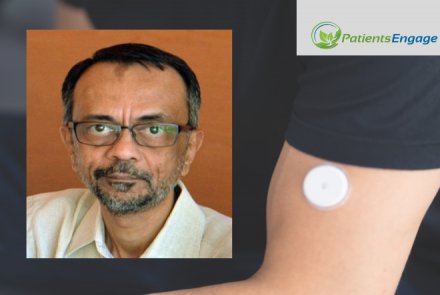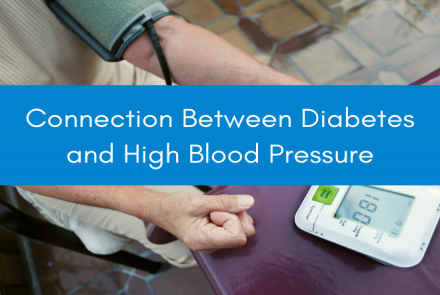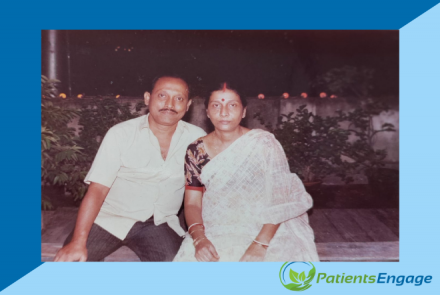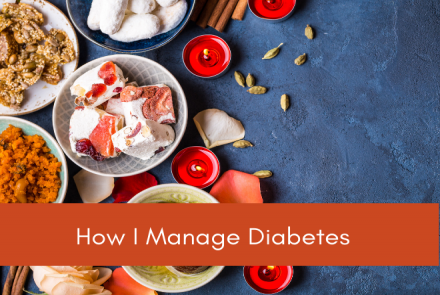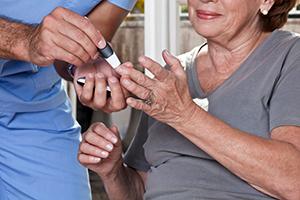
Bhavya Munjal, Clinical Nutritionist & Certified Diabetes Educator at Fortis CDOC (Centre of Excellence for Diabetes, Metabolic diseases & Endocrinology) debunks 12 prevailing myths about insulin used to treat type 2 diabetes.
Insulin is the most misunderstood drug. Many patients with type 2 diabetes avoid it and some accuse it of causing diabetic complications. Yet insulin is one of the best treatments available for keeping blood glucose levels in target range. For people who have type2 diabetes and their A1C is not in desired range despite of their best efforts, insulin may be the next step in treating diabetes. Here are some myths and facts regarding insulin which may help one to overcome fears.
1. MYTH: Insulin cures diabetes.
Currently, there is no cure for diabetes. Insulin is one of the best methods available of controlling diabetes. Insulin converts glucose into energy and is used to manage diabetes and control blood glucose levels.
Related Reading: What to expect when you switch to Insulin
2. MYTH: Insulin injections will disrupt my life.
If your doctor prescribes insulin, don't panic. Many people believe that once they start insulin, they can no longer be independent, live alone, travel, or eat away from home. None of these is true. With planning, there is no reason why you cannot do everything you did before. The doctor will design a dosing schedule that will fit your lifestyle and various types of insulin are available for different needs. Convenience devices like insulin pens and pumps may provide even more flexibility in your daily life.
3. MYTH: Taking insulin means I have failed at managing my diabetes.
Using insulin is not a sign of diabetes control failure. Nor is it an indication that your risk of diabetes complications has increased. All people with Type 1 diabetes must take insulin. And after few years of successful management, often patients with Type2 diabetes reach a point where improved glucose control can only be obtained by using insulin. This is not your fault. It is a natural progression of Type 2 diabetes.
4. MYTH: Insulin injections hurt.
Needle fear is a common complaint for many people taking injections. However, today's insulin syringes and pens are painless. The best way to overcome this fear is to try injecting insulin injection on your own. Your doctor/ diabetes educator can show you how to administer the injection. Injection technique and even the temperature of the insulin could be a factor. Insulin is injected into the layer of fat below the skin where there are no pain receptors. In fact, most people tell me that the finger pricks used to measure their blood glucose levels hurt much more than their insulin injections.
5. MYTH: If I take insulin, I will have more hypoglycaemic events.
Using insulin can increase the risk of hypoglycaemia but there are insulins available that make hypoglycaemia less likely to occur. Learning how to properly alter the insulin dosage is the first step to . Also, it is important to learn how to prevent, recognise and treat low blood sugar in case of an emergency.
6. MYTH: Insulin will make me gain weight so I shouldn't use insulin.
Some people with type 2 diabetes may gain weight after starting insulin therapy. However, often this weight gain occurs due to improved blood sugar control. Uncontrolled diabetes causes people to lose weight because glucose cannot get to the cells in the body. When insulin is introduced, glucose can be absorbed from the calories eaten, leading to some of the weight that was previously lost being regained.
To minimize weight gain following the initiation of insulin therapy, people with diabetes should make healthful food choices and get regular exercise.
7. MYTH: Insulin is addictive.
You cannot become addicted to insulin. It is a natural substance that the body requires. It is understandable that frequent use of needles to inject insulin might provoke thoughts of drug use and addiction, so if using syringe needles in public causes you concern, try going into a bathroom to administer your insulin, or through an insulin pump.
8. MYTH: It does not matter where insulin is injected.
Rate of insulin absorption is determined by the site of injection. Injection around the abdomen has the fastest rate of absorption, while the thighs and buttocks are the slowest. Insulin should be injected in subcutaneous fat area. Also, injection site should be rotated. Multiple injections in the same place can cause fat deposits to build up under the skin, which can delay insulin absorption.
9. MYTH: Once you start insulin you cannot stop.
In Type 1 diabetes insulin-producing beta cells within the pancreas are gradually destroyed and eventually fail to produce insulin. Therefore people with Type 1 diabetes require insulin lifelong. People with Type 2 diabetes, however, are still able to produce insulin at diagnosis but over time, the beta cells of the pancreas can wear out completely and lose the ability to secrete sufficient insulin. People with Type 2 may be treated with insulin at one time and then switched to oral medications or other injectable diabetes medications. Some people may even be able to decrease their medications as their blood glucose improves and others still may find they are able to stop taking medications altogether once they lose weight and improve their lifestyle.
10. MYTH: Using insulin means I can eat the way I want.
A poor diet means more requirement of insulin to lower your blood glucose levels. Insulin, like oral medications, is only a part of the diabetes treatment plan. The most effective way to use insulin is in combination with a healthy diet and exercise. However, insulin or any other diabetes medication cannot take the place of you taking care of yourself.
11. MYTH: Insulin causes complications like blindness and kidney failure.
The belief that insulin causes complications or death often comes from seeing what happened in the past to family members or friends with diabetes. The reality is that people do not develop complications from being started on insulin, but rather, they develop complications from being started on insulin too late. Insulin actually reduces the risk of getting complications of diabetes.
12. Myth: Insulin is too expensive.
Diabetes is expensive, no question about it. Generally, however, insulin is usually less expensive than using several different types of oral medications. Because prices can vary a great deal at different stores, shop around for the best prices on insulin and other supplies.


